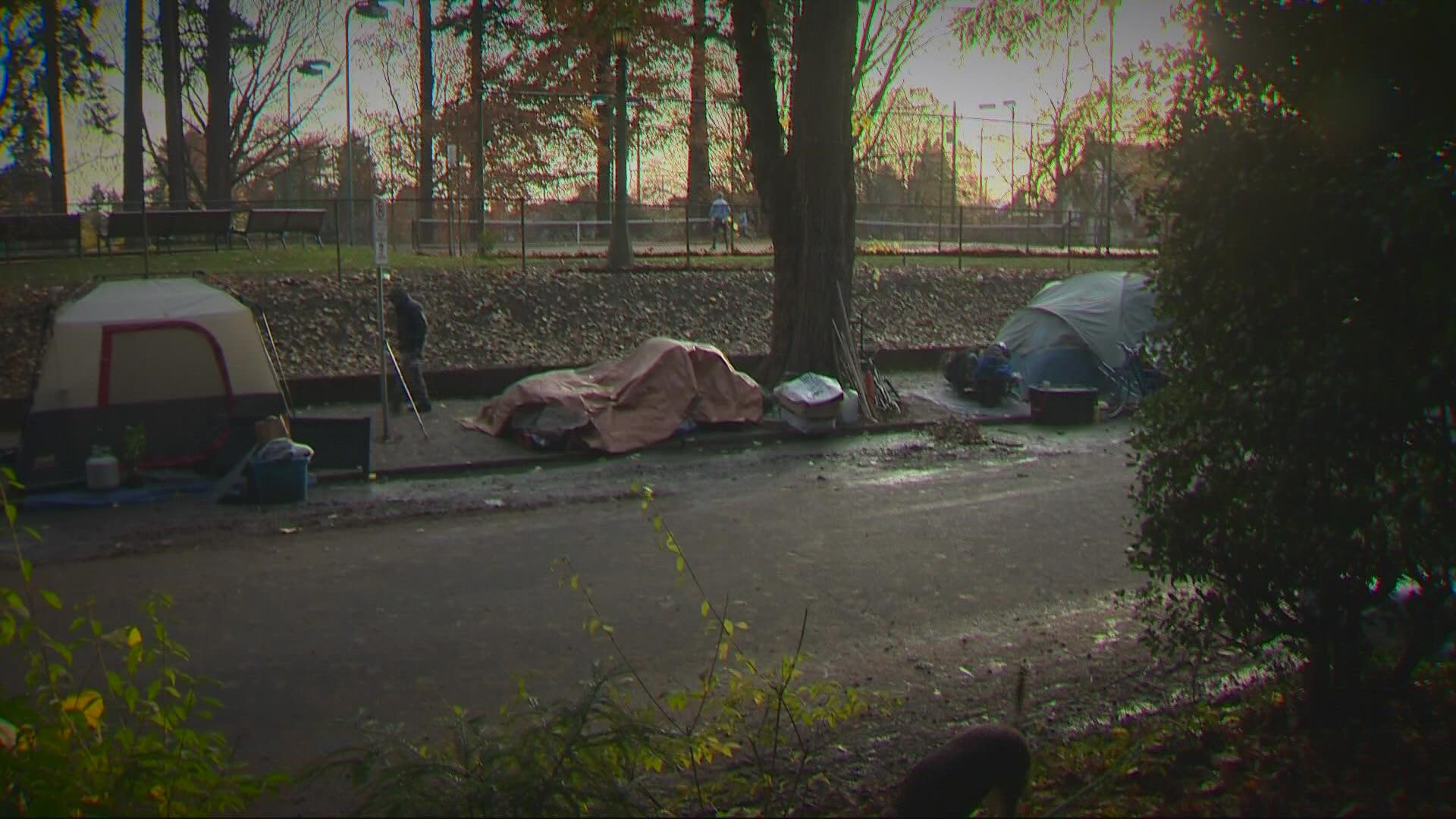MULTNOMAH COUNTY, Ore. — Last week, Multnomah County and Street Roots released an annual report on the number of homeless deaths in the county. In 2020, 126 people experiencing homelessness died - the most deaths counted since the county began tracking this statistic in 2011.
The "Domicile Unknown" report tracks the number of deaths in the county, as well as causes and characteristics of how people died. According to the report, the leading causes were drug and alcohol use, specifically opioids and methamphetamine. The average age of people who died was 46. More than half of the deaths were ruled accidental.
The report also shares some of the stories of the deceased, highlighting their struggles, often, with addiction or mental health.
Organizations helping people experiencing homelessness - like the Blanchet House in Portland - say this report underscores what they see on a daily basis: people fighting to survive amid a worsening situation.
"These deaths are tragic, they seem senseless to us," said Executive Director Scott Kerman, "They're heartbreaking because these are people that we get to know."
His nonprofit provides meals, hot coffee, clothing and supplies to people multiple times a day.
"It's not necessarily just to improve circumstances - but really to help people survive from day-to-day. It's really become that dire for many of the people that we are serving," Kerman said, "There's no question it's a life or death matter for many people who are houseless."
"What I am mindful of is that these are 2020 figures, and by all accounts, things on the street, in regards to meth and also fentanyl are much worse than they were in 2020. So we have to remind ourselves, as we are ending 2021, we are talking about 2020 numbers, what is the conversation going to be a year from now?"
Trauma, substance abuse, depression, anxiety, PTSD - Kerman believes all of this has worsened for many since the beginning of the pandemic. He agrees that the detailed findings in the Domicile Unknown report serve as a force for change, an urgent push to address the housing problem.
"If we don't do a better job at addressing the root causes, then we are going to be endlessly treading water when it comes to solving the situation for people who are housing insecure," he said.
Rose Haven is a shelter and community center in Portland for women, children and others experiencing homelessness. Development Director Liz Starke has seen the impacts of the housing crisis over the past year.
“We’re seeing the direct impacts of what it has been like for people who have been living outdoors since COVID kicked in, ” Starke said. "The elimination of indoor public spaces has had such an impact on the women and children that we serve.”
People on the street or in tents live a harsh existence. Starke said, “They are ultimately exposed constantly and feel invisible at the same time.”
Starke said there is no magic wand to end homelessness.
The housing crisis is a complex situation with many different approaches to addressing the issue here.
“‘Housing First’ is a great tagline and it works, but we are still going to need emergency supportive services,” Starke said.
Starke explained that the transition to living in a home again is a huge culture shock.
“Imagine if you’ve been living outside for a year looking over your shoulder every single night and then all of a sudden you’re in an apartment by yourself isolated," Starke said. "This is why supportive housing services are important."
Other organizations in Portland do believe 'Housing First' is part of the solution for ending homelessness.
Andy Miller said he has been fighting for housing justice over the last 25 years and is currently the Executive Director for Human Solutions.
Miller explained shelters can often be a difficult place for a houseless person who may have behavioral health issues or addictions.
Since shelter life can be traumatic in and of itself, Miller said this leads to other issues that arise from the constant stress of living in that environment.
”If we try to approach all those issues and stresses first before we focus on housing, the approach is less effective than if we move folks into housing where they suddenly have the privacy and autonomy of their own home," Miller said.
In what order is the most effective way to end homelessness? Do we apply services or housing first?
“Overwhelmingly research confirms when we provide housing first. People are incredibly successful in ending their own homelessness and make more positive choices when they have the stability of a home.”
Miller believes housing is key. "It’s the platform from almost which everything we do springs forth," Miller said.
Miler thinks we will do better when everyone has a home.
“One of the reasons why we’re so intent on ending the homeless crisis is many people don’t have the chance they deserve—to participate in community life, in family life-- because they’re simply struggling with survival," Miller said.

